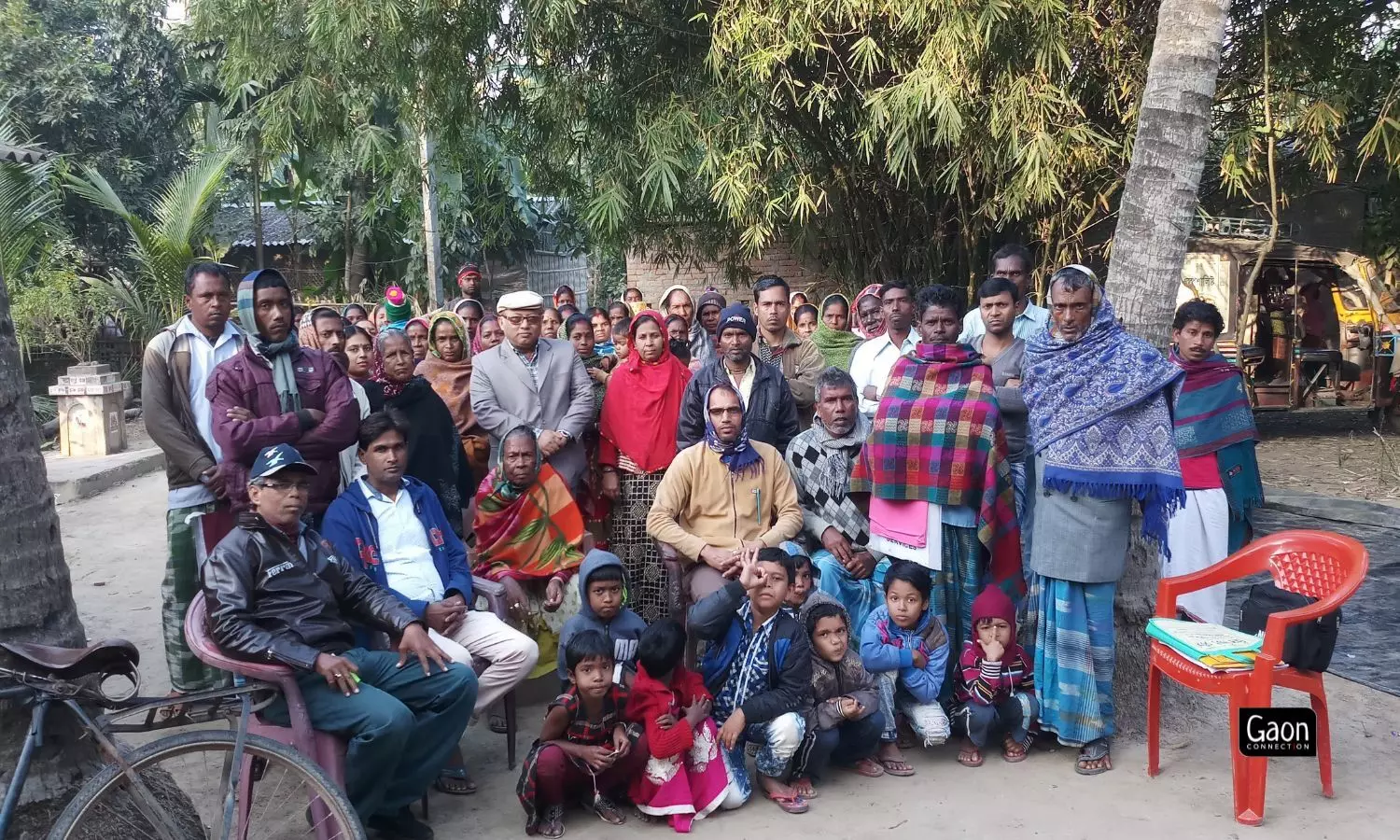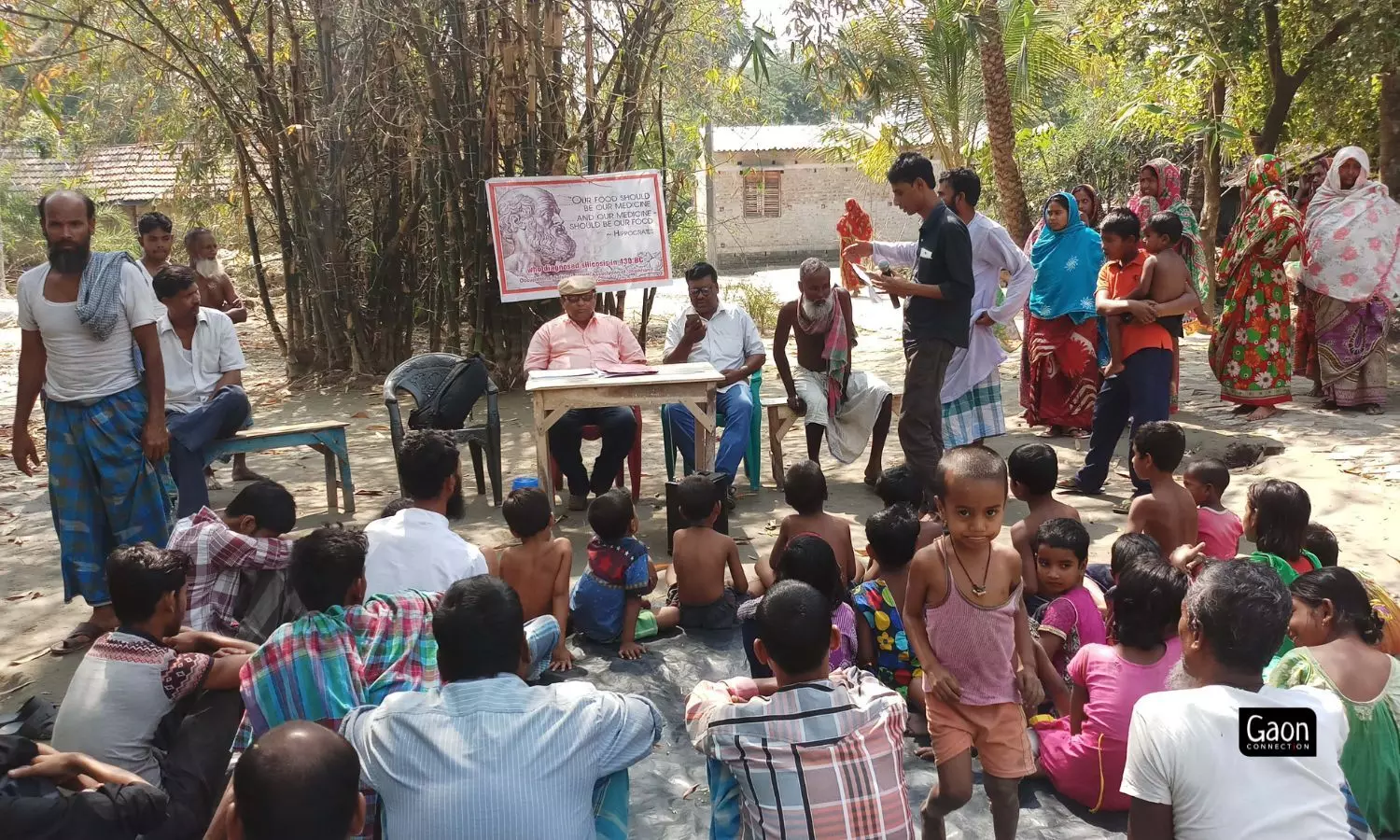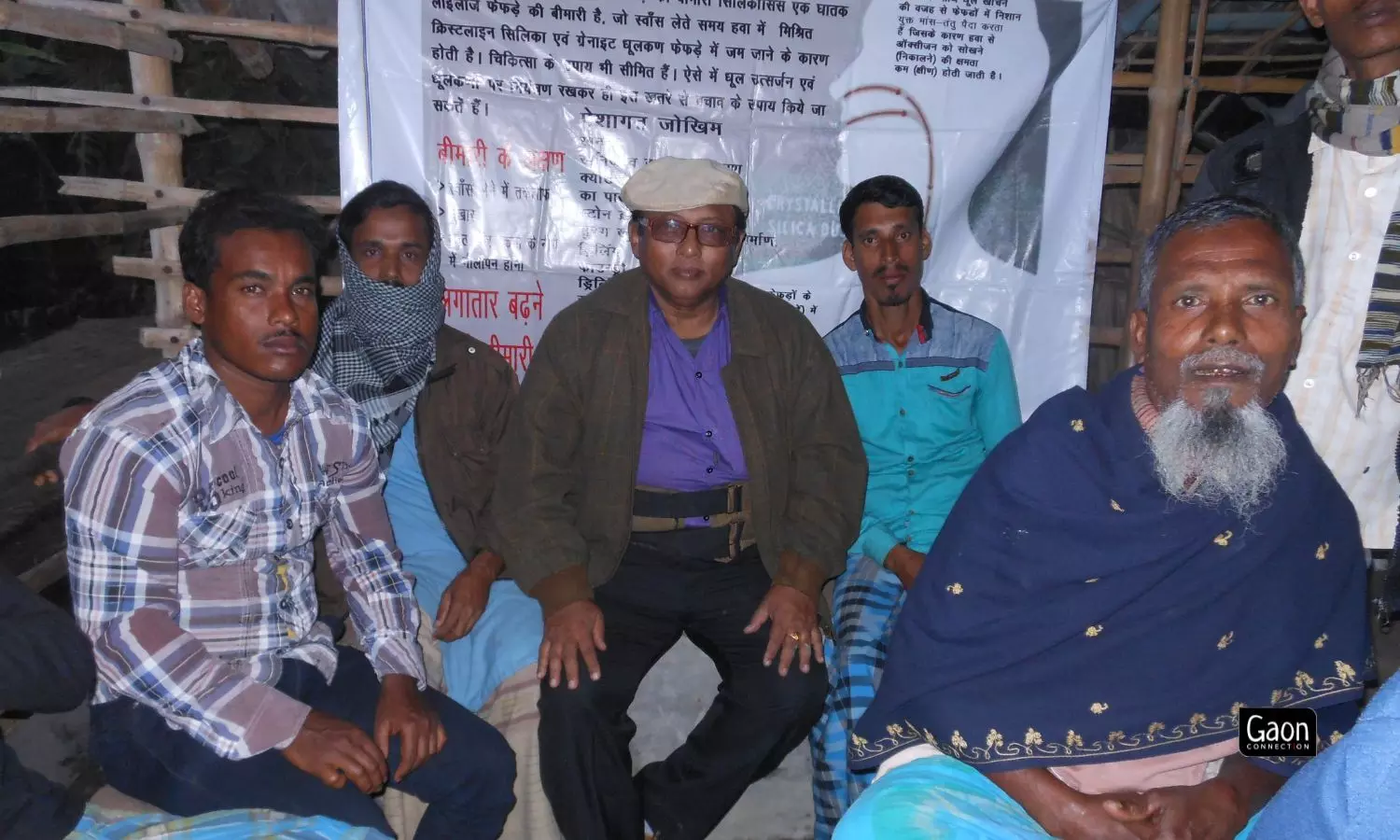Jamshedpur, Jharkhand
Samit Kumar Carr is on an unusual mission. For the past two decades, the 68-year-old social activist has been travelling from village to village in the tribal belts of Jharkhand and West Bengal collecting chest X-Rays from local villagers who have complained of lung infection.
His mission is to help identify patients of silicosis and get them, or their families (in case the patient is deceased), monetary compensation from the government. So far, more than 100 families of workers who contracted silicosis have benefited from Carr’s mission and have received compensation worth several crore of rupees from the government.
Silicosis is a long-term lung disease caused due to inhalation of large amounts of crystalline silica dust, usually over many years. It is an irreversible occupational disease, often fatal, which is prevalent among workers at ramming mass factories. Under the third schedule of the Factories Act, 1948 of the Indian Penal Code, silicosis has been notified as an occupational disease.

Average age of a patient dying from silicosis is 33 years in these villages. Prevalence rate of the disease in the ramming mass industry is 80 per cent.
Thousands of tribal villagers in Jharkhand and West Bengal work at factories that involve the production of ‘ramming mass’. It is produced by crushing silica rocks at crushing plants, and is used in making insulators. The air quality at such plants is deteriorated by finely powdered silica which enters the lungs of workers and causes silicosis. The disease results in permanent lung damage and is a progressive, debilitating, and sometimes fatal disease.
“In my experience, 300 out of 1,200 silicosis affected employees at four ramming mass factories in East Singhbhum district have died between 2002 and 2023. The death toll would be much higher if you include migrant workers,” Carr told Gaon Connection. According to him, tribal villagers from Musabani, Dhalbhumgarh, Dumaria, Gurubandha, Potka, Adityapur, Kandra are plagued by this respiratory disease.
Also Read: “Smoking one cigarette a day reduces lifespan by six years. We breathe in stone dust 24 hours a day”
Laxmi Mardi of Dhobani village in East Singhbhum district of Jharkhand is one of the hundreds of tribals whom Carr has helped receive compensation. Laxmi’s mother, Parvati Mardi, died of silicosis in 2012.
“I received four lakh rupees in 2016 because Carr sir proved it to the government that my mother died of silicosis and my family was entitled to receive compensation for her death,” 27-year-old told Gaon Connection. “It was because of this compensation that I could afford the expenses for my higher studies and complete B.Sc [Bachelor of Science] in Nursing,” said Laxmi Mardi, who works as a nurse at Tata Main Hospital in Jamshedpur.
Laxmi’s deceased mother worked as a labourer at a factory near Dhobani village in Jharkhand’s East Singhbhum district. The factory manufactures ramming mass which is used for making insulators for electrical appliances. Her work environment required her to breathe in silica-laden dust, which led to her contracting silicosis that turned fatal, said the daughter.
“I can never forget how my mother used to cough endlessly, struggle for breath and groan in pain,” said Laxmi Mardi. It was the trauma of watching her mother die which inspired her to become a nurse and care for her patients. And activist Carr supported her at every step.
Apart from Laxmi Mardi’s mother, activist Carr has helped another 47 silicosis patients in Jharkhand in availing their compensation. There are another 52 such families in neighbouring West Bengal where compensation has been ensured by him.

Compensation should be given to workers if they die due to silicosis, Carr said.
Since 2002, Carr has been touring tribal villages near factories that manufacture ramming mass. He has collected more than 2,000 X-Ray plates of workers who were suspected silicosis patients.
“Around 25 per cent of these patients were women,” Carr pointed out.
Also Read: They left home in search of work, came back with silicosis
“Average age of a patient dying from silicosis is 33 years in these villages. Prevalence rate of the disease in the ramming mass industry is 80 per cent. Workers who inhale this dust during production may get affected by it within 20 days or even a year. Workers who reside at the factory premises for 24 hours get affected quickly as compared with others,” the activist added.
Compensation should be given to workers if they die due to silicosis, Carr said. “But workers are deprived of it as they can’t prove that they were employed at such industries. I am trying to do my bit,” he added.
Laxmi Mardi stated that had it not been for Carr, the lives of many children of silicosis-affected workers would have been unimaginable.
“Minor boys from the families of silicosis victims migrate for earning opportunities after they become orphans while girls become domestic workers. For these family members, monetary compensation by the state government is a ray of hope for a better future,” she said.
“They use this money to set up shops or some marginal business. We are thankful to the National Human Rights Commission and Carr sir for ensuring us relief and rehabilitation,” she added.
A Father’s Motivation
Carr’s father Sailesh Kumar Carr motivated him to work for patients who suffer occupational disease. Also, his grandfather Shyama Charan Carr owned a glass factory in Japan between 1904 and 1916 and many workers there were found to be affected with silicosis.
Carr has also taught primary education to 60 economically backward children of daily wage workers at Bhatia Basti in Jamshedpur from 1975 to 1978. With his financial support, 18 children of silicosis victim families passed highschool from Juradevi High School in Musabani block of East Singhbhum.
After completing his higher studies, Carr had started working for the rights of workers who live with occupational diseases. He found symptoms of lung- related diseases among workers while studying the impact of dust at a mining site at Tilaisud village in West Singhbhum in 2002.
Also Read: Odisha: NGT penalises Rs 360 million for mining sand 240 times above permissible limit
But initially, villagers refused to give X-Ray plates for medical tests. Rather, they accused Carr for practising witch hunting.

After completing his higher studies, Carr had started working for the rights of workers who live with occupational diseases.
Eventually, he got their X-Ray plate from 11 workers in 2006. He presented a paper on occupational disease at the World Social Forum at Mumbai in 2003 based on his study at Tilaisud.
Carr also established an organisation named Occupational Safety and Health Association of Jharkhand (OSHAJ) in 2003 to advocate for the rights of such workers. With the help of funding from charitable sources, he meets expenditure for the mission.
Physicians like Kunal Kumar Dutta, Tapan Kumar Mohanty, MS Khalid Qureshi, and Kundan Kumar played a crucial role in diagnosis of silicosis patients. With their support, Carr has ensured justice to the victims of silicos.




















